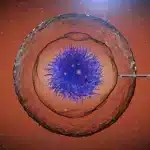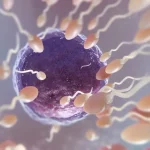
In vitro fertilization (IVF) is an intricate and emotional journey for many couples in their quest to start a family. How long does it take to complete the procedure? Understanding the IVF timeline is important to managing expectations and preparing for physical and emotional challenges. For some individuals, the process may also include the decision to become an egg donor. This might be a very useful tool for people who want to become parents.
IVF Timeline Overview
The IVF process is typically broken down into several phases, each lasting a few weeks. On average, the entire procedure can take between 4-6 weeks for each cycle, though it may vary depending on individual circumstances. Here’s a general overview of the IVF timeline.
How Long Is the IVF Process
Initial Consultation & Preparation (1-3 Weeks)
Starting IVF requires meeting with a fertility expert for an initial appointment. You’ll discuss your medical history and complete basic tests such as blood work or ultrasounds before receiving an individual treatment plan tailored just to you. This consultation could last anywhere between one and three weeks, depending on scheduling needs and diagnostic testing needs. During this time, you may also want to explore options like donor egg IVF if you’re considering using an egg donor. Platforms such as EggDonors4All offer valuable resources and insights for individuals on this path, ensuring that prospective parents have access to reliable egg donors.
Ovarian Stimulation (10-14 Days)
Once you are ready to start the IVF cycle, the first major step is ovarian stimulation. It involves hormone injections over 10-14 days in order to stimulate the ovaries into producing multiple eggs. Ultrasounds or blood tests can be used to monitor the development of your ovum.
Your doctor will adjust the medication as needed to ensure optimal egg production. In cases where age is a factor, IVF success rates by age may be discussed, particularly when considering the potential for egg donation or other options. It’s critical to comprehend how these elements affect IVF success rates over 40, as age can significantly affect the outcome of the IVF process.
Egg Retrieval (1 Day)
After your eggs have matured, they will be retrieved in a minor surgical procedure. Egg retrieval is typically done under sedation, and the procedure takes about 20-30 minutes. You’ll need a few hours to recover afterward. This is a crucial step in determining IVF success rates USA, as the number and quality of eggs retrieved are key factors in the likelihood of success.
Fertilization & Embryo Culture (3-5 Days)
Once the eggs are retrieved, they will be fertilized in the lab using either conventional IVF or ICSI (Intracytoplasmic Sperm Injection). The fertilized eggs will be monitored as they develop into embryos over the next 3-5 days. The embryologist will select the best embryos for transfer. For those who may be using an egg donor, understanding the donor egg IVF success rate is vital. This may be an important consideration when selecting the right donor and understanding what outcomes you can expect.
Embryo Transfer (1 Day)
The embryo transfer is the last stage of the IVF cycle. This is a relatively simple procedure where one or more healthy embryos are placed into the uterus. It’s typically done without anesthesia and takes only about 10-15 minutes. After the transfer, you will rest for a short period before being able to go home. At this point, IVF success rates over 40 may be a concern for some, and knowing the potential for success with donor egg IVF can offer hope for those struggling with age-related infertility challenges.
Pregnancy Test & Follow-Up (2 Weeks)
Two weeks after the embryo transfer, you will take a blood test to confirm whether the embryo has been implanted in your uterus and the pregnancy is progressing. If successful, your doctor will continue to monitor hormone levels and conduct ultrasounds in the following weeks.
If the test is negative, your doctor may discuss the next steps, including potential adjustments to the IVF plan or starting a new cycle. For those interested in becoming an egg donor, this period of waiting can also serve as an opportunity to reflect on the impact of egg donation on others’ IVF journeys and how it influences overall IVF success rates.
Factors That Can Impact the IVF Timeline
While the above timeline serves as a general guide, several factors can influence how long IVF will take:
- Age: Older women may require more time for ovarian stimulation or may need additional cycles to achieve pregnancy. As discussed earlier, IVF success rates by age are essential to consider, especially for those over 40. If you’re struggling with fertility at this age, the IVF success rates over 40 can provide a clearer picture of what to expect.
- Egg Quality: The quality of eggs, whether your own or from a donor, can impact fertilization and embryo development. This is a key component in understanding donor egg IVF success rates, as choosing a high-quality egg donor can significantly improve the chances of success.
- Medical Conditions: Conditions like PCOS, endometriosis, or male infertility can affect the timeline of the process. These factors may require additional intervention or influence the IVF success rates in your specific case.
Frequently Asked Questions
Q: How long does the IVF process take from start to finish?
Ans: The IVF process typically takes 4-6 weeks per cycle, though it may vary based on individual factors. The duration of the IVF journey can be influenced by various aspects, such as age, medical conditions, and whether you are using your own eggs or considering donor egg IVF.
Q: What is the first step in IVF?
Ans: The first step is an initial consultation with a fertility specialist, which includes medical evaluations and a personalized treatment plan. This consultation will help you to understand your fertility status, and it’s important to discuss factors like IVF success rates and how they may be affected by age or other considerations.
Q: How long does ovarian stimulation last?
Ans: Ovarian stimulation usually lasts 10-14 days and involves hormone injections and regular monitoring. The goal is to stimulate the ovaries to produce multiple eggs for retrieval, with the timing closely monitored to maximize the chances of success. IVF success rates by age are an important factor to consider during this phase, as older women may need more time or adjustments to medication.
Q: When can I take a pregnancy test after embryo transfer?
Ans: A blood test is done about two weeks after embryo transfer to check for pregnancy. This is the critical moment when you’ll find out if the embryo has been successfully implanted. If successful, IVF success rates USA will help you understand the likelihood of further success in your pregnancy journey.
Q: Can egg donation affect the IVF timeline?
Ans: Yes, using an egg donor may add some time to the process, as finding and matching with a donor can take additional weeks. The donor egg IVF success rate is typically higher, and using an egg donor can be especially beneficial for individuals over 40, where IVF success rates over 40 may be lower. Suppose you’re considering becoming an egg donor. In that case, it’s important to understand how this decision can impact the process for others while improving the chances of a successful IVF outcome.
Conclusion
The IVF journey can be long and emotional, but understanding the IVF timeline helps you prepare mentally and physically for each step. Whether you are using your own eggs or considering egg donation, organizations like EggDonors4All can provide vital support to ensure you have the best possible chance of success.
Remember, each IVF journey is unique, and your fertility clinic will be able to guide you through a personalized timeline based on your individual needs. While the process may take several weeks, the reward of bringing new life into the world makes every step worthwhile.
In addition to understanding the process, you should also familiarize yourself with IVF success rates, especially if you are over 40 or considering using donor eggs. Be sure to ask your fertility specialist about the most relevant statistics, including IVF success rates USA, as this can help manage expectations and guide your decisions. Dial 212-661-7177 for more info.

Dr. Kulsoom Baloch
Dr. Kulsoom Baloch is a dedicated donor coordinator at Indian Egg Donors, leveraging her extensive background in medicine and public health. She holds an MBBS from Ziauddin University, Pakistan, and an MPH from Hofstra University, New York. With three years of clinical experience at prominent hospitals in Karachi, Pakistan, Dr. Baloch has honed her skills in patient care and medical research.







